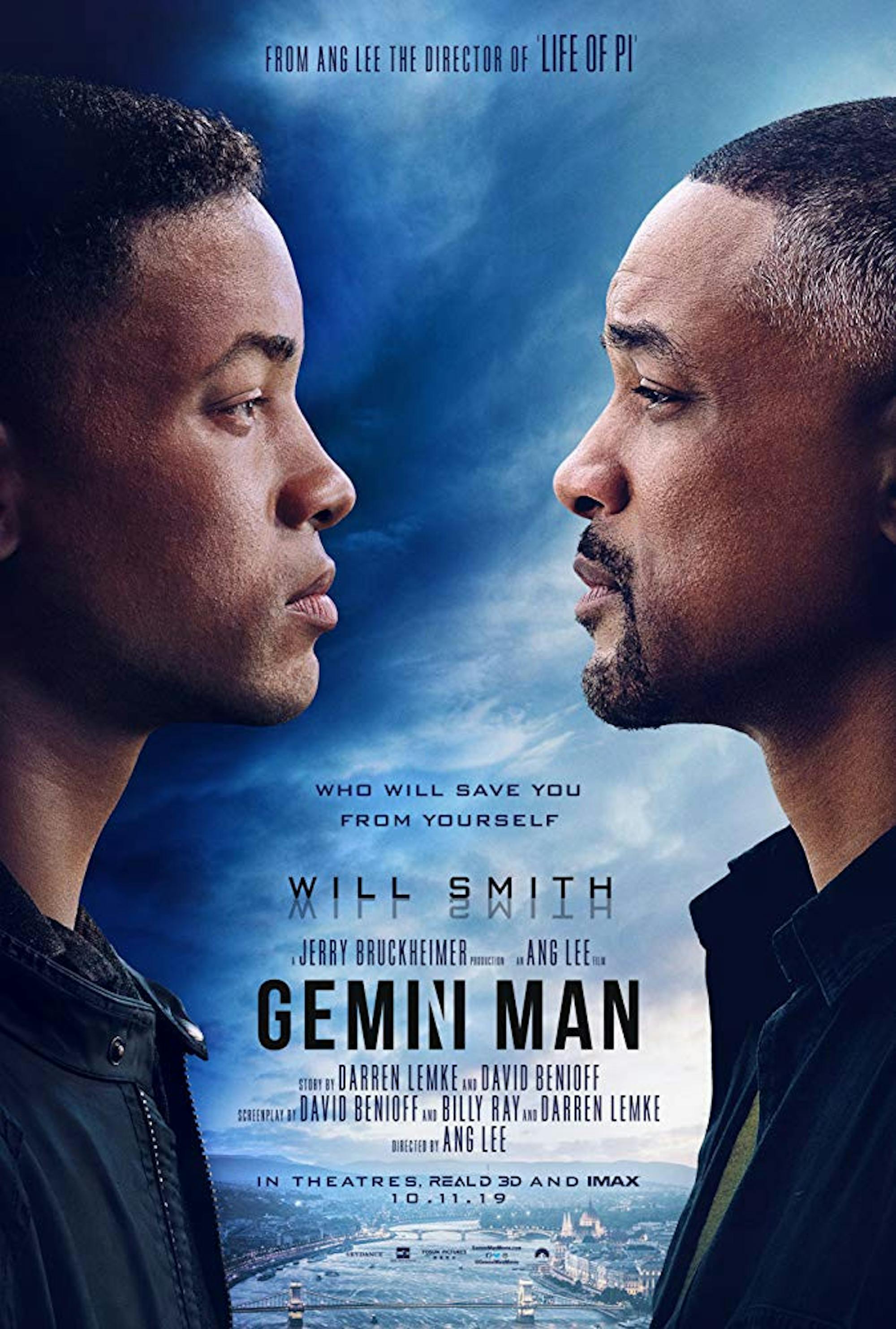Three years after he introduced High Frame Rate (HFR) technology with the war drama "Billy Lynn’s Long Halftime Walk" (2016), Taiwanese director Ang Lee comes back with his new action-packed thriller "Gemini Man" (2019). Aside from its extensive use of technology, the movie boasts a strong veteran cast including Will Smith and Mary Elizabeth Winstead. Furthermore, it brings some of the best contemporary screenwriters, including David Benioff, who has been known for his work on "Game of Thrones" (2011–2019)."Gemini Man" tells a basic Hollywood-style story with a near-future, sci-fi setting. Smith takes the role of Henry, a skilled but aging government assassin, who is being hunted by Junior, the 23-year-old cloned version of himself.
Although "Gemini Man" appears to be a breezy action thriller different from Lee’s previous works, the director does use some familiar themes from his old movies. The major emotional backbone in "Gemini Man" is the complicated father-son dynamic between Clay Varris (Clive Owen) and his cloned son Junior. Not knowing that his father cloned him based on the assassin and designed him as a weapon to kill, Junior faces a complicated moral dilemma after finding out the truth from Henry. The scene when the naïve, heartbroken Junior confronts his strict and authoritative father mirrors Lee’s early “Father Knows Best” trilogy (1991–1994).Lee portrays the figure of a strict, authoritative and emotionally-muted father and the image of a young son who struggles to express his doubts and love.
However, the plot and script of "Gemini Man" are far from perfect. The screenplay lacks depth and does not match up with Lee’s talent shown in his previous works. Critics have been disappointed by the movie’s underwhelming camera work and its major issue with the premise. They certainly have a reason. Lee ends "Gemini Man" abruptly with an easy way out: The good guy kills the bad guy and the cloned young Junior returns to college under the loving care of his newfound father figure Henry. Compared to "Blade Runner 2049" (2017), a dystopian film which also has a near-future, sci-fi setting and addresses a similar moral dilemma with cloning, "Gemini Man" does a poorer job exploring questions related to identity, faith, technology and modernization. With all of its shortcomings considered, the movie currently holds a 25% rating on Rotten Tomatoes.
Beside problems with the screenplay, Lee’s ambition for technological innovation is at the center of the controversy. In fact, Lee started his bold visual experiment all the way back in 2012 with "Life of Pi".Lee shot the movie around the three hardest-to-shoot elements — children, animals and water — with extensive use of computer-generated imagery (CGI). The experiment was a great success and won four Academy Awards including Best Director. After "Life of Pi," pure CGI could not satisfy Lee, as he moved on to experiment with HFR technology in "Billy Lynn’s Long Halftime Walk." Like "Billy Lynn," "Gemini Man" is also created using HFR. Lee abandons the conventional 24-frames-per-second for the quick succession of 120 images within the span of a second to create a more detailed texture. At five times the frame rate, there is very little motion blur, which closely reflects the vision of human eyes. Lee sees the future of films in HFR (what he calls “the promise of digital cinema”), as he believes movies made with HFR can instantly give the audience a unique immersive feeling. The hyper realistic style of HFR movies also gives more intimacy to the movie, as in "Gemini Man" the audience can see more clearly how sweat and tears drip down from Henry and Junior. It is striking to see the landscape with every detail as Junior moves quickly during a motorcycle chase scene or the texture of water with every shade of blue as Henry falls into an underground spring in a catacomb. However, HFR does not work for everyone and some of the audience must think it’s too much to be forced to see every detail in every scene.
The feedback from film critics is extremely polarized and mostly negative. Even at the age of 65, Lee has never been a director who plays it safe. With his bold experiments, however, it is hard to turn his ambition and sincerity into a box-office smash. Lee said during an interview with Deadline, “What we’re chasing is the next medium. Should we take baby steps or take the risk of a giant leap?” Indeed, should technology serve the film or should the film serve technology? It is time for us to rethink the relationship between art and technology.
Ang Lee’s 'Gemini Man': A revolutionary film experiment or a Waterloo?

A promotional poster for 'Gemini Man' (2019) is pictured.
Summary
Ang Lee's "Gemini Man" is a bold visual experiment which falls short of viewers' expectations but leads the audience to reconsider the relations between film and technology.
3.5 Stars





